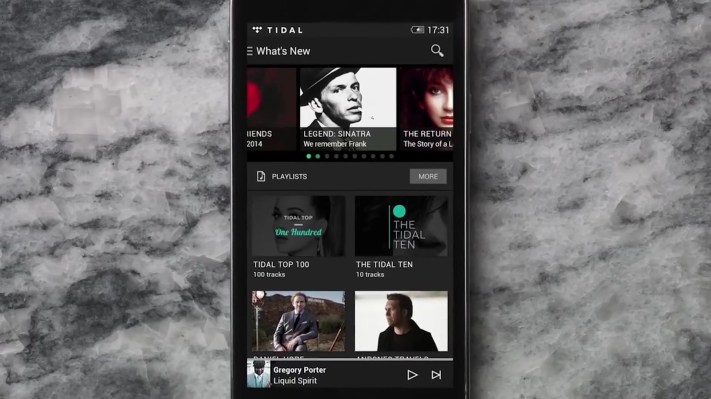Jay Z’s hyped music streaming service Tidal, which focuses on high-fidelity streams and exclusive content – including most recently, Prince tunes – is attempting to catch up to the competition today with the debut of its own “Family” plan. The plan, which is comparable to that from Spotify, lets additional family members sign up and receive 50 percent off their subscription. This discount is applicable whether they’re signing up for the $9.99 per month Premium plan or the $19.99 per month HiFi streaming option.
Other music services today also offer family plan pricing, including Rdio, Spotify and Apple Music, for example, so this move is not so much about Tidal doing something unique to differentiate itself from those on the market, but rather is about reaching the point where it’s at least on par with the alternatives.
While the plan itself makes Tidal more affordable for families – or other households where a primary user manages the accounts for others – it’s still not as affordable as Apple Music. Instead, similar to how Spotify operates, Tidal is offering discounts for each new member who signs up under the primary account, and those extra members can then manage their own music playlists and settings, as they would normally. The additional members are able to join for as low as $4.99 per month for the Premium plan, and each account can register up to three devices for offline mode use, the company says. However, in larger households, those dollars could add up.
Meanwhile, Apple Music remains the best priced plan for families, with a family plan that can be shared with up to six people for $14.99 per month. (Spotify may soon be matching this price, however, the company has hinted.)
This is not the first time Tidal has introduced a discounted plan. In June, the company also rolled out a student subscription which let anyone with an .edu email address sign up for half price.
But for Tidal, the challenge ahead for the service is not really about its price points. The trouble for Tidal is that it’s trying to appeal to consumers with promises of better-quality music – which few outside of a small group of audiophiles are that concerned with (see also: Neil Young’s doomed PonoMusic) – along with music exclusives, which also may have limited appeal. The question now is whether or not Tidal will be able to pull together enough exclusives to make its service compelling to a wide group of consumers. And with Apple’s entry into the streaming market, it faces steep competition on both pricing and record label negotiations.
